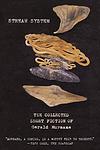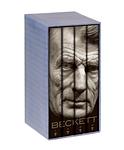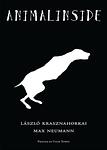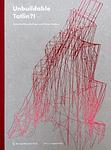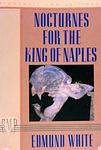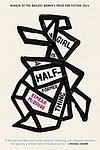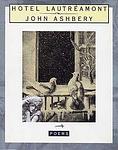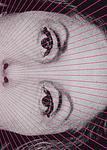The Greatest "Modernist, Experimental, Fiction" Books Since 1970
Click to learn how this list is calculated.
This list represents a comprehensive and trusted collection of the greatest books. Developed through a specialized algorithm, it brings together 300 'best of' book lists to form a definitive guide to the world's most acclaimed books. For those interested in how these books are chosen, additional details can be found on the rankings page.
Genres
Modernist literature is a category of books that emerged in the early 20th century, characterized by a break from traditional literary forms and a focus on individual experience and perception. Modernist writers experimented with language, form, and structure, often using stream-of-consciousness narration and fragmented storytelling to convey the complexity and ambiguity of modern life. Themes of alienation, disillusionment, and the search for meaning are common in modernist literature, which reflects the cultural and social upheavals of the time. Overall, modernist literature is a challenging and thought-provoking genre that continues to influence contemporary literature and culture.
The "Experimental" category of books is characterized by works that challenge traditional literary conventions and push the boundaries of form and content. These books often incorporate unconventional narrative structures, language, and themes, and may experiment with different mediums such as poetry, visual art, or multimedia. The goal of experimental literature is to create new and innovative ways of storytelling that challenge readers' expectations and expand the possibilities of what literature can be.
Countries
Date Range
Reading Statistics
Click the button below to see how many of these books you've read!
Download
If you're interested in downloading this list as a CSV file for use in a spreadsheet application, you can easily do so by clicking the button below. Please note that to ensure a manageable file size and faster download, the CSV will include details for only the first 500 books.
Download-
1. Franz Kafka: The Complete Stories by Franz Kafka
This collection of stories offers a comprehensive look at the work of a renowned author, known for his surreal and often unsettling depictions of modern life. The stories explore themes of existential anxiety, guilt, and absurdity, often through narratives in which ordinary people face extraordinary, inexplicable circumstances. The collection showcases the author's unique style and his profound influence on 20th-century literature.
-
2. Gravity's Rainbow by Thomas Pynchon
Set during the end of World War II, the novel follows Tyrone Slothrop, a lieutenant in the U.S. Army, as he tries to uncover the truth behind a mysterious device, the "Schwarzgerät", that the Germans are using in their V-2 rockets. The narrative is complex and multi-layered, filled with a vast array of characters and subplots, all connected by various themes such as paranoia, technology, and the destructive nature of war. The book is known for its encyclopedic nature and its challenging, postmodernist style.
-
3. The Book of Disquiet by Fernando Pessoa
"The Book of Disquiet" is a posthumously published collection of thoughts and musings of a solitary dreamer, who is a Lisbon-based bookkeeper. The book delves into the mind of a man who is discontented with his mundane life and finds solace in dreaming and writing. The narrative is a profound reflection on life, solitude, and the nature of humanity, filled with philosophical insights and poetic language. The protagonist's introspective journey and his struggles with existential despair make it a seminal work in the genre of literary modernism.
-
4. The Hour of the Star by Clarice Lispector
"The Hour of the Star" is a poignant narrative that explores the life of Macabéa, a poor, unattractive, and naive typist living in the slums of Rio de Janeiro. The story is narrated by Rodrigo S.M., a sophisticated writer who struggles with how to accurately portray Macabéa's simple existence and her tragic fate. The novel delves into themes of identity, poverty, and the human condition, presenting a stark contrast between the lives of the rich and the poor, the educated and the ignorant, and the beautiful and the plain.
-
5. The Unconsoled by Kazuo Ishiguro
The book follows a renowned pianist who arrives in a Central European city to give a concert. However, his time there becomes increasingly surreal and disjointed as he is pulled in different directions by the demands of the locals, his own past, and his responsibilities. The narrative explores themes of memory, time, and self-delusion, creating a dream-like atmosphere that blurs the lines between reality and illusion.
-
6. Concrete by Thomas Bernhard
The book is a darkly introspective narrative that delves into the mind of a reclusive, obsessive intellectual who is struggling to complete his scholarly work on the composer Mendelssohn. As he grapples with his own ailments and the perceived mediocrity of his surroundings, the protagonist's stream-of-consciousness monologue reveals his deep-seated anxieties, self-loathing, and profound isolation. The narrative is a relentless examination of the protagonist's psyche, showcasing his critical view of society and his own personal relationships, which are fraught with tension and dysfunction. Through this, the novel explores themes of artistic creation, intellectual elitism, and the suffocating nature of expectations and familial obligations.
-
7. Sleepless Nights by Elizabeth Hardwick
"Sleepless Nights" is a novel that weaves together memories, reflections, and fictionalized episodes to paint a portrait of a woman's life. The narrative is fragmented and non-linear, reflecting the protagonist's introspective journey through her past relationships, experiences, and observations. Set against the backdrop of various American and European backdrops, the book delves into themes of love, loss, identity, and the complexities of the human condition. The protagonist's musings are interlaced with vivid character sketches of the people who have drifted in and out of her life, creating a tapestry of poignant and evocative vignettes that capture the essence of her restless, contemplative existence.
-
8. Happy Moscow by Andrey Platonov
"Happy Moscow" is a satirical novel set in the Soviet Union during the height of Stalinist rule, following the life of a young woman, Moscow Chestnova, who is named after the capital city. Despite the harsh realities of life under an authoritarian regime, she maintains a positive and optimistic outlook, symbolizing the Soviet Union's propaganda that promoted an image of a happy and prosperous society. The novel, through its characters and their experiences, explores the paradoxes and contradictions of the Soviet society, challenging the official narrative of happiness and prosperity.
-
9. Inland by Gerald Murnane
Inland is a complex and introspective novel that explores the inner workings of the human mind and the concept of reality. The story is narrated by a man who is reflecting on his life, his relationships, and his experiences, using the vast landscapes of his native Australia as a metaphor for his inner world. The narrative is non-linear and often fragmented, reflecting the man's scattered thoughts and memories. The novel is a deep exploration of the human psyche, the nature of memory, and the power of the imagination.
-
10. Briefing For A Descent Into Hell by Doris Lessing
In this novel, a man found wandering the streets of London with no memory is admitted to a psychiatric hospital, where doctors attempt to diagnose and treat his condition. As he remains in a comatose state, the narrative delves into his complex inner world, blending reality with fantastical visions. Through his journey, the book explores themes of identity, the human psyche, and the boundaries between sanity and madness. The narrative challenges the conventional understanding of mental illness and the nature of reality, inviting readers to question the structures of society and the mind.
-
11. House Of Hunger by Dambudzo Marechera
"House of Hunger" is a powerful collection of stories and poems that vividly depict the struggles and despair experienced by the marginalized individuals living in post-colonial Zimbabwe. Through a raw and fragmented narrative style, the author explores themes of poverty, violence, and the loss of cultural identity, providing a haunting portrayal of a society grappling with the aftermath of colonialism. Marechera's poignant and thought-provoking work serves as a powerful critique of social and political injustices, leaving readers both disturbed and enlightened.
-
12. Childhood by Nathalie Sarraute
"Childhood" is a memoir that delves into the fragmented memories of the author's early years, exploring the complexities of growing up and the formation of identity. Through a series of vignettes, the narrative captures the nuanced emotions and experiences of a young girl navigating her way through the challenges of family dynamics, societal expectations, and self-discovery. The author employs an innovative literary style, characterized by introspection and a stream-of-consciousness approach, to reflect on the elusive nature of memory and the ways in which our childhood experiences shape who we become.
-
13. The Loser by Thomas Bernhard
"The Loser" is a philosophical novel that revolves around the complex relationship between three friends who are all piano virtuosos. The narrative is driven by the protagonist's obsession with his friend's suicide, which he believes was triggered by the realization that they could never surpass the genius of their third friend. The book delves into the protagonist's psyche as he grapples with themes of talent, ambition, failure, and the destructive power of comparison.
-
14. The Complete Dramatic Works Of Samuel Beckett by Samuel Beckett
This book is a comprehensive collection of Samuel Beckett's dramatic works, showcasing his unique style and exploration of human existence. From the iconic "Waiting for Godot" to lesser-known plays, Beckett's works delve into themes of despair, absurdity, and the human condition. With his minimalist approach and masterful use of language, Beckett's plays continue to captivate and challenge readers, offering a profound reflection on the complexities of life.
-
15. Animalinside by László Krasznahorkai, Max Neumann
"Animalinside" is a haunting and surreal novella that delves into the mind of a narrator who becomes consumed by an animalistic alter ego. As the protagonist's thoughts and actions blur the line between human and animal, the narrative takes on a dark and disorienting tone, exploring themes of identity, violence, and the primal instincts that lie within us all. Through the collaboration of Krasznahorkai's mesmerizing prose and Neumann's striking illustrations, "Animalinside" offers a mesmerizing and thought-provoking exploration of the human psyche.
-
16. Tatlin! by Guy Davenport
"Tatlin!" is a collection of imaginative short stories that blend historical fact with fiction, exploring the lives and works of various artists and intellectuals. The narratives are rich with allusions and delve into the creative processes of these figures, including the titular Russian avant-garde architect and designer. The book weaves together themes of art, invention, and the complexities of human experience, presenting a tapestry of intertextual vignettes that challenge the boundaries between reality and imagination. Through its lyrical prose and intricate structure, the collection offers a unique meditation on the nature of genius and the eternal quest for artistic innovation and expression.
-
17. Forgetting Elena by Edmund White
The novel presents a surreal and allegorical tale set on an enigmatic island, where the amnesiac protagonist struggles to navigate a society governed by intricate and arbitrary social codes. As he attempts to reconstruct his identity and understand his past, he encounters a cast of eccentric characters who embody the peculiar customs and rituals of the island's culture. The narrative, rich with metaphor and satire, explores themes of memory, identity, and the search for self amidst the bewildering constraints of a highly stylized community.
-
18. Nocturnes For The King Of Naples by Edmund White
The book is a lyrical and introspective novel that explores the themes of love, loss, and desire through the lens of a man reflecting on his past relationship with an older, enigmatic lover. The narrative unfolds in a series of evocative vignettes and musings, blending reality with fantasy, as the protagonist grapples with the enduring impact of this deeply transformative affair. Set against the backdrop of various locations, including Naples, the novel delves into the complexities of memory and the haunting nature of longing, weaving a tapestry of emotion and poetic imagery that captures the essence of romantic yearning and the pain of its inevitable dissolution.
-
19. A Girl Is A Half Formed Thing by Eimear McBride
"A Girl Is A Half Formed Thing" is a powerful and experimental novel that delves into the psyche of a young woman as she navigates through a tumultuous and abusive childhood, her complex relationship with her mentally and physically disabled brother, and her own journey towards self-discovery and identity. Written in a unique stream-of-consciousness style, the book explores themes of trauma, sexuality, religion, and resilience, offering a raw and unflinching portrayal of the human experience.
-
20. Flow Chart by John Ashbery
"Flow Chart" is a long, meditative poem that weaves through the complexities of life, consciousness, and creativity. The work is characterized by its free-flowing structure, which mirrors the meandering nature of thought and the interconnectedness of experiences. The poem's speaker reflects on a range of subjects, from the mundane to the profound, exploring memory, time, art, and the intricacies of human relationships. With its blend of humor, melancholy, and philosophical insight, the poem invites readers to contemplate the ebb and flow of life's journey and the patterns that emerge from the chaos of existence.
-
21. Hotel Lautréamont by John Ashbery
"Hotel Lautréamont" is a collection of poetry that weaves together a tapestry of vivid imagery, linguistic playfulness, and intertextual references. The poems are characterized by their elusive meanings and open-ended interpretations, inviting readers to embark on a journey through a landscape of memory, art, and the subconscious. The poet's masterful use of language challenges conventional structures and expectations, creating a work that defies easy categorization and reflects the complexities of human thought and emotion.
-
22. The Complete Stories by Clarice Lispector
"The Complete Stories" is a collection that brings together the short fiction works of a renowned writer, known for her innovative and introspective style. The stories span through various phases of her career, offering a comprehensive look at the broad spectrum of human emotions and existential themes. Through her distinctive narrative voice, the author explores the inner lives of her characters, often delving into their complex psychological landscapes. The collection showcases her unique ability to blend the mundane with the philosophical, revealing the profound within the subtleties of everyday life.
Reading Statistics
Click the button below to see how many of these books you've read!
Download
If you're interested in downloading this list as a CSV file for use in a spreadsheet application, you can easily do so by clicking the button below. Please note that to ensure a manageable file size and faster download, the CSV will include details for only the first 500 books.
Download







